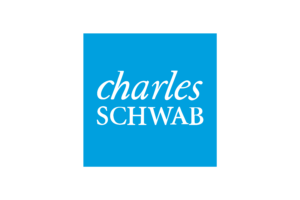
TL;DR: Retiring early is a realistic goal with the right planning and strategy. Whether you envision traveling, pursuing passion projects, or enjoying more time with family, early retirement offers freedom and fulfillment.
Proven Strategies to Retire Early:
- Define your retirement vision — Know your goals, lifestyle, and ideal timeline
- Calculate your financial independence number — Use the 25x rule or a dynamic calculator
- Aggressively save and invest — Max out retirement accounts and leverage compound growth
- Embrace a lean lifestyle — Spend intentionally to increase your savings rate
- Increase your income — Through side hustles, investing, or career advancement
- Invest for long-term growth — Build a portfolio with a trusted advisor to grow your wealth sustainably
- Plan for healthcare costs — Prepare for expenses before Medicare kicks in at 65
Early retirement doesn’t have to be a far-off fantasy.
The truth is, with the right strategy, mindset, and discipline, retiring early is more achievable than ever before. It can also help you enjoy your golden years to their fullest.
Read on to learn more about the undeniable benefits of this decision, along with actionable strategies that can help you retire early.
Benefits of Retiring Early
More Time for Personal Passions and Hobbies
It’s simple; retiring early gives you more time to explore your personal passions. This could be anything from traveling the world, taking up painting or pottery, volunteering for causes close to the heart, or finally writing that novel. No matter how you choose to spend your time, early retirement offers the time and mental space to explore interests that might have been sidelined during working years.
Improved Mental and Physical Health
Did you know that delaying retirement can cause regrets? On the other hand, leaving the workforce early can help remove stress factors that could be taking a toll on your physical and mental health.
Many retirees also use this time to implement a healthier daily routine.
Greater Control Over Your Time
Early retirement also gives you complete control over your time. Design your days around what matters most to you. Whether that’s spending time with family or learning a new hobby. You can create a routine or embrace spontaneity – the choice is yours!
Opportunity for Second Careers or Entrepreneurship
Many early retirees seize the opportunity to launch passion-driven ventures or explore fulfilling side projects. They still have the energy and zest to start something new without worrying about it being their main source of income.
Starting a new venture after retiring early can look different from your typical 9-5. You can prioritize passion over profit and work a more flexible schedule.
Typical Early Retirement Age
As you likely know, 67 is the typical retirement age for those born in 1960 or later. Once you reach full retirement age, you are eligible for your Social Security retirement benefits.
However, you can start receiving these benefits at age 62. This is considered early retirement, and you will likely experience a reduction in your monthly benefits. Of course, you can choose to leave the workforce even earlier if that’s your goal.
Common early retirement ages include:
- Age 55: Often considered the upper end of early retirement, aligning with some pension eligibility rules.
- Age 50: A common goal for those who want to leave high-pressure careers behind while still in good health.
- Age 45: Seen as ambitious but achievable for those aggressively pursuing financial independence.

How to Retire Early
There’s no one-size-fits-all guide to how to retire early. Ultimately, you want to ensure you have enough retirement savings to help you live comfortably after leaving the workforce. The age at which you choose to retire and what that magic number is entirely up to what your goals are.
That being said, there are some strategies that can help you on your path to retire early.
1. Define Your Retirement Vision
Before crunching numbers, you must define what you’re retiring to. Your vision becomes the foundation of your financial and lifestyle plan.
Ask yourself:
- Where will you live?
- What will your days look like?
- What are your fixed and discretionary expenses?
2. Calculate Your Financial Independence Number
This is the amount of money you need invested to retire early and live comfortably off your portfolio. A widely accepted starting point is the 25x rule (multiply your estimated annual expenses by 25). This assumes you’ll safely withdraw 4% of your portfolio annually without running out of money, known as the 4% rule.
Use a dynamic retirement calculator to see the earliest age you can comfortably leave your job.
3. Aggressively Save and Invest
When early retirement is your goal, you should start saving more than the average individual. By saving upwards of 50% of your income, you can accelerate your timeline to financial independence.
Some ways you can be aggressive but still savvy about saving include:
- Maxing out tax-advantaged accounts: 401(k), IRA, and HSA (especially powerful if used for medical expenses in retirement)
- Investing the rest: Use taxable brokerage accounts to keep growing your wealth beyond contribution limits
- Leveraging compound interest: The earlier you start investing, the more time your money has to grow exponentially
4. Embrace a Lean Lifestyle
An aggressive savings strategy goes hand in hand with a more frugal lifestyle. Living below your means can ultimately boost your savings rate. This doesn’t mean you shouldn’t enjoy life!
Prioritizing value over excess helps you find joy in the here and now while still saving for the future.
5. Increase Your Income
If you’re able to increase your income while living frugally, you can further streamline your path to early retirement. Higher income allows for a higher savings rate without sacrificing comfort.
Do this strategically through:
- Side hustles (e.g., tutoring, delivery, design work)
- Remote freelance gigs in writing, coding, consulting, or coaching
- Real estate investments: Rental income and long-term equity
- Dividend-paying stocks: For future passive income
- Career growth: Ask for raises, switch companies, or negotiate better roles
6. Invest for Long-Term Growth
You’ve heard that the sooner you start saving for retirement, the better. The same is true for kickstarting your investment strategy. Early retirement depends on sound investing strategies that prioritize long-term stability over short-term gains. A trusted advisor can help you understand your risk profile so you’re making smart choices that align with your goal of early retirement.
7. Plan for Healthcare Costs
When you retire early or in good health, unexpected medical expenses can feel far off. Make sure to save enough so healthcare costs don’t derail your retirement timeline. Find a plan that bridges the gap between your retirement and when Medicare becomes available at 65.
Need Help Planning for Early Retirement?
Whether you need guidance on how to apply for early retirement or are just starting to build out your retirement plan, a trusted advisor can be your best asset in navigating these important decisions.
Learn more about our expert retirement planning services at Elite Income Advisors.
EIA Income Advisors, Inc. is a registered investment adviser and only conducts business in jurisdictions where it is properly registered, or is excluded or exempted from registration requirements. Registration is not an endorsement of the firm by securities regulators and does not mean the adviser has achieved a specific level of skill or ability. The firm is not engaged in the practice of law or accounting.
We reserve the right to edit blog entries and delete comments that contain offensive or inappropriate language. Comments that potentially violate securities laws and regulations will also be deleted.
The information presented is believed to be factual and up-to-date, but we do not guarantee its accuracy and it should not be regarded as a complete analysis of any topics discussed. All expressions of opinion reflect the judgment of the authors on the date of the post and are subject to change. A professional adviser should be consulted before making any investment decisions. Content should not be viewed as personalized investment advice or as an offer to buy or sell any of the securities discussed.
All investments and strategies have the potential for profit or loss. Different types of investments involve higher and lower levels of risk. There is no guarantee that a specific investment or strategy will be suitable or profitable for an investor’s portfolio. There are no assurances that an investor’s portfolio will match or exceed a specific benchmark.
Historical performance returns for investment indexes and/or categories usually do not deduct transaction and/or custodial charges, or advisory fees, which would decrease historical performance results.
Hyperlinks on this blog are provided as a convenience. We cannot be held responsible for information, services, or products found on websites linked to our posts.
Annuity and life insurance guarantees are subject to the claims-paying ability of the issuing insurance company. If you withdraw money from or surrender your contract within a certain time after investing, the insurance company may assess a surrender charge. Withdrawals may be subject to tax penalties and income taxes. Persons selling annuities and other insurance products receive compensation for these transactions. These commissions are separate and distinct from fees charged for advisory services. Insurance products also contain additional fees and expenses.
Social Security rules and regulations are subject to change at any time. Always consult with your local Social Security office before acting upon any information provided herein.
Tax and legal information contained in this publication is general in nature and should not be relied upon as tax or legal advice. Always consult an attorney or tax professional regarding your specific legal or tax situation. Tax and pension rules are subject to change at any time.





